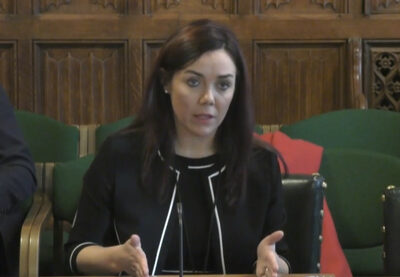Government officials have started secret talks over reshaping the flagship National Tutoring Programme (NTP) next year, suggesting ministers are looking to cancel Randstad’s current contract.
Schools Week understands that “market warming” discussions have begun between the Department for Education and would-be bidders about next year.
It is understood Randstad – the international HR company that runs the scheme – did not know about the discussions.
The company has a “one year, plus one year, plus one year” agreement with the government, but has come under heavy criticism over its performance.
NTP reached just one third of the promised two million courses last month, but the Department for Education insists they will reach that target this year.
Randstad has yet to be told of its future, but the DfE must give 60 days’ notice if it plans to extend the contract.
Market warming is a useful test to assess the demand for a new contract from potential bidders. It can also help a contracting authority plan for and scope a new procurement process
Richard Moore, a partner at Clarke Willmott LLP, said the market warming discussions would suggest the DfE is “thinking about not extending the contract further and looking at procuring again”.
“Market warming is a useful test to assess the demand for a new contract from potential bidders. It can also help a contracting authority plan for and scope a new procurement process.”
Crown Commercial Service documents states that pre-tender market engagement can “give suppliers an understanding” of requirements.
Programme could focus on school-led provision
No tender has been published so far, but sources suggest next year’s NTP could instead focus more on schools-led tuition.
A new schools-led pillar – where cash is given directly to schools to organise tutoring – has proved popular after being introduced this year, accounting for three-quarters of started courses.
The two original arms organised by Randstad – tuition partners and academic mentors – have seen much slower take-up.
The two are both in Randstad’s contract for next year and beyond.
The DfE did not confirm whether these discussions had begun. A spokesperson said schools had continued to “provide feedback to the department over the course of the year – in particular regarding the need for a programme that is as simple for schools to navigate and implement”.
“The department is exploring all options to make sure that feedback is reflected in the programme next year.”
Since November, a raft of changes have watered down criteria to use the programme.
This includes DfE transferring £65 million of the funding originally for the approved tutors and academic mentor routes going into the school-led tutoring arm of the programme.
DfE announced on Friday that each school will receive a 15 per cent “minimum uplift” in their final school-led tutoring payment this academic year. Details allocations will be shared in April.
Robert Halfon, the chair of the education committee and a vocal critic of the catch-up scheme, said last week that Randstad should get “one last chance” after previously calling on the government to “seriously enact the break clause”.
Randstad: School-led tutoring ‘most attractive’ option
Karen Guthrie, Randstad’s senior programme director for the NTP, said it continued to work in “partnership” with DfE to “evolve and develop” the catch-up programme.
She said “it has become apparent that school-led tuition is proving the most attractive option”.
“Randstad has placed more academic mentors into classrooms than last year and directly engaged over half of the schools in England since the beginning of the academic year, which has significantly contributed to the success of school-led tuition,” she said.

No data has been released on how many academic mentors have been placed, nor how many schools have been reached.
Guthrie added: “Monitoring and progressing the NTP has always been an integral part of our engagement with the DfE, in order to provide and shape the best possible service to our schools and children as the pandemic’s impact transitions.”
Geoff Barton, the general secretary of the school leaders’ union ASCL, said heads would have to know next academic year’s NTP arrangements “as soon as possible so that they can begin planning” as the “mechanics…are complex”.
“The school-led tutoring route has proved to be by far the most popular of the three routes this year and we hope this will be reflected in the funding allocations for next year.”
















Your thoughts